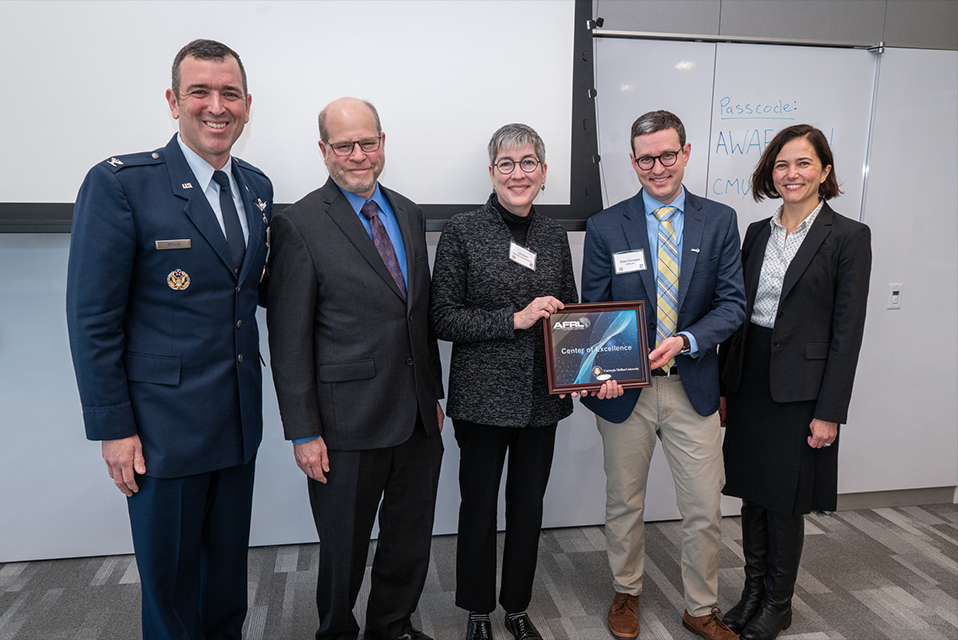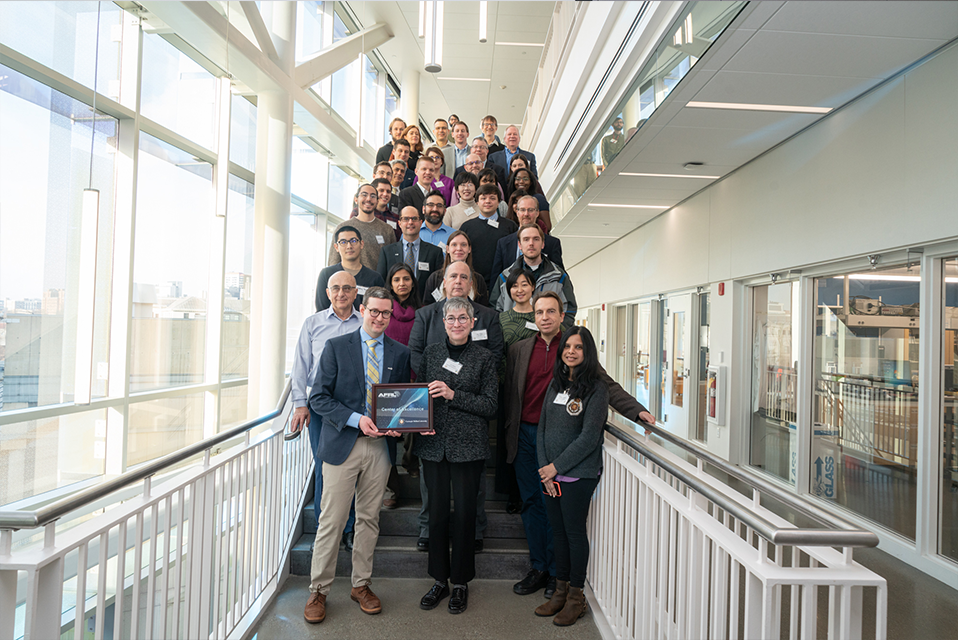Air Force partnership to fuse AI and materials research
CMU and Air Force Research Laboratory establish 5-year, $7.5M Center of Excellence in data-driven materials research.
Sitting at the nexus of data science, computer vision, and machine learning, artificial intelligence (AI) has the promise to provide insights from large, high-dimensional datasets that can stay otherwise hidden from traditional data analysis approaches. However, its application in materials science has been comparatively slower than some fields due to the specialized knowledge required to apply AI to physical systems, as well as the wide variety of problems and data types encountered.
In an effort to push forward the state-of-the-art in materials science research, Carnegie Mellon University (CMU) and the Air Force Research Laboratory (AFRL) are establishing a collaborative Center of Excellence. The center will leverage the strengths of the two institutions to develop next-generation aerospace materials, establish a pipeline of research talent with both AI and materials science expertise, and advance the materials science field by integrating AI into materials research and design.
The 5-year, $7.5M joint Center of Excellence, named Data-Driven Discovery Of Optimized Multifunctional Material Systems (D3OM2S), is supported by an award from the Air Force Office of Scientific Research (AFOSR) and the AFRL Materials and Manufacturing Directorate. Investigators from AFRL will join those from CMU in Pittsburgh for a center kickoff meeting on Dec. 12 and 13.
“CMU is uniquely positioned to incubate this type of cross-disciplinary research, as we have deep expertise in both materials characterization and discovery, as well as computational science and machine learning,” said Liz Holm, a professor in Materials Science and Engineering and the center’s principal investigator.
Of partnering with the Air Force Research Laboratory, Holm said that many of the on-going research projects at CMU are relevant to the AFRL mission, such as development of emerging materials and expertise in microstructural science. AFRL brings its own host of capabilities and strengths to the partnership, including advanced materials characterization facilities, expertise in additive manufacturing and other areas, and world-class materials science investigators.
The center will focus on four major research thrust areas:
- characterization and prediction of rare events in materials,
- multimodal data fusion,
- adaptive experimental design, and
- adaptive materials design in complex environments.
A diverse set of physical systems and research questions will be covered by the thrust areas, but each will rely on several fundamental principles required to connect AI approaches to physical systems, such as enforcing a physical basis in interpreting AI results and fusing rich and diverse datasets characteristic to materials science.
Multiple colleges, schools, and institutes will be brought together across CMU through the Center of Excellence, including the College of Engineering, the School of Computer Science, and the Robotics Institute. Within the College of Engineering, each of the departments of Mechanical Engineering (MechE), Electrical and Computer Engineering (ECE), and Materials Science and Engineering (MSE) will be represented. Eleven CMU faculty counting Holm will serve as investigators within the Center, including Michael Bockstaller (MSE), Yuejie Chi (ECE), Marc De Graef (MSE), B. Reeja Jayan (MechE), L. Burak Kara (MechE), Barnabas Poczos (Machine Learning), Gregory Rohrer (MSE), Anthony Rollett (MSE), Aarti Singh (Machine Learning), and Lining Yao (Computer Science).
This is the type of transformative support that will establish CMU at the forefront of the materials science - data science interface for years to come.
Liz Holm, Professor, Materials Science & Engineering
Central to the goal of forging a deep connection between AI and materials science is developing a next generation of researchers with competencies in both areas. The Center of Excellence plans to support 12 to 16 Ph.D. students over its term, providing a unique educational experience where students will have access to AFRL personnel, facilities, and hardware. Each student will have the opportunity to work during the summer term at the Wright Patterson Air Force Base, a premier AFRL research facility located in Dayton, OH. The award will prepare a materials science workforce fluent in AI methods and applications with a strong potential to contribute to AFRL in the future.
Winning this award is a type of capstone achievement for CMU that summarizes its excellence in multiple academic disciplines. It also will coalesce researchers around new and emerging disciplines by establishing new collaborative partnerships and research areas.
“We had to be a leader in this space to be competitive for this award in the first place,” said Holm, “but this is the type of transformative support that will establish CMU at the forefront of the materials science - data science interface for years to come.”


